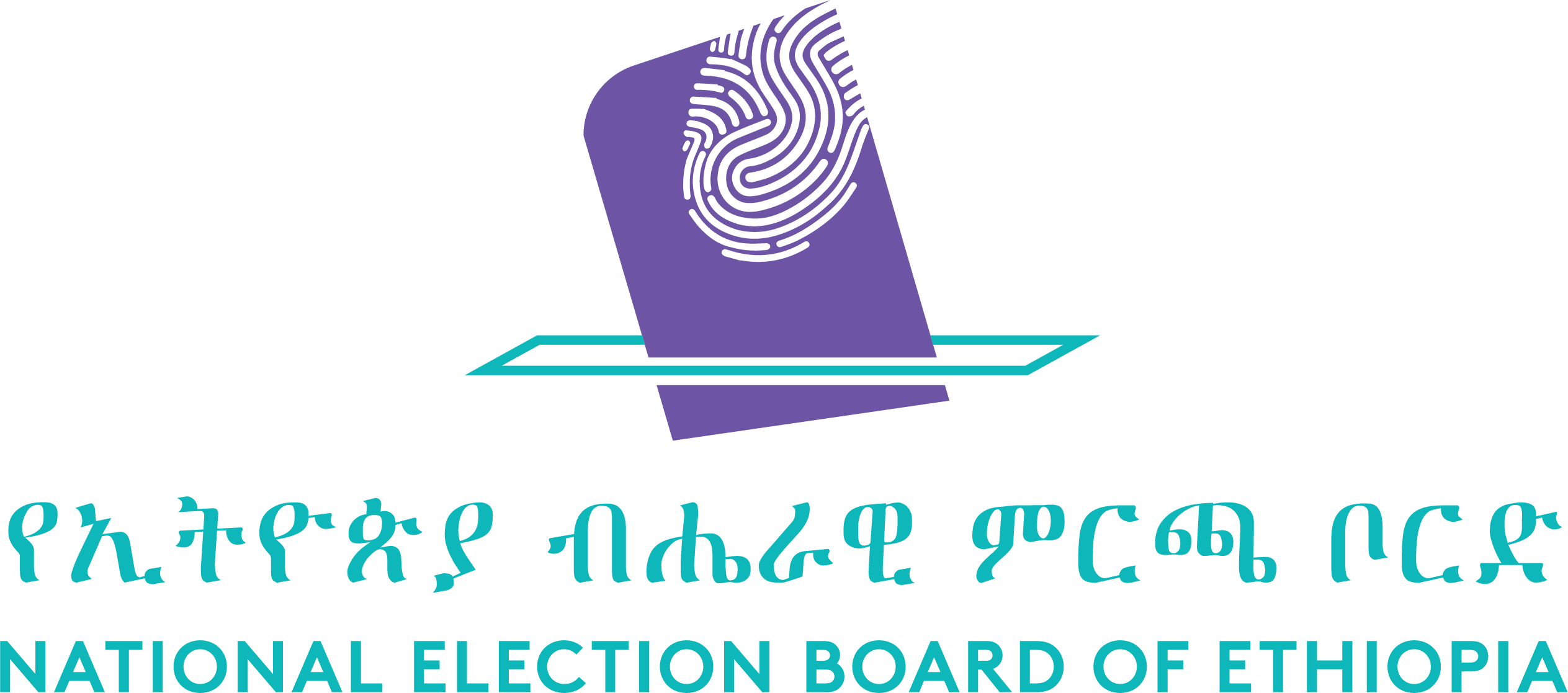The National Electoral Board of Ethiopia (NEBE) is an independent organization established in accordance with Article 102 of the Constitution of the Federal Democratic Republic of Ethiopia. Since its establishment, the Board has organized different branch offices at both the federal and regional levels including the two administrative cities. The NEBE has conducted six national elections, four local elections, and eight referendums.
Since January 2019, in an effort to reform NEBE, the House of Peoples’ Representatives enacted a new proclamation that reduced the management board to five members that serve full time for a period of six years. According to Proclamation no.1133/2019, the board has the following powers and duties.
The board has the following powers and duties:
1. Executing impartially any election and referendum conducted in accordance with the Constitution and with Election Law;
2. Granting permission, following up and supervising civil society organizations providing voter education;
3. Registering political parties, following-up and supervising them in accordance with the law;
4. Providing guidelines for the manner in which monetary funds may be divided among political parties and, in accordance with these guidelines, allocating the funds;
5. Determining the manner in which political parties may use media during elections;
6. Undertaking studies on how to divide electoral regions and present a recommendation to the House of Federation on the basis of those studies;
7. Issuing authorization to election observers and following up and supervising their activities;
8. Establishing branch offices of the board in all regional and sub-regional levels;
9. Facilitating and ascertaining that elections held periodically and at every level are conducted in a free and fair manner;
10. Preparing and distributing documents and materials necessary to conduct elections;
11. Issuing directives necessary to perform its duties given by this Proclamation and other laws
12. Certifying neutrality and freedom of electoral officers and also protecting them from any influence that they may come under in relation to their work;
13. Determining the number of polling stations necessary to carry out an election;
14. Establishing the electoral regions and polling stations necessary to carry out an election nationwide;
15. Ensuring that competent and non-partisan electoral officers who enjoy public trust are recruited and trained;
16. Collecting and organizing data relating to elections and political parties, by reviewing election laws and their implementation, submitting issues that need revision to the concerned body;
17. Coordinating a joint forum of political parties;
18. Certifying and officially announcing election results;
19. Providing administrative relief for complaints raised in the course of election;
20. Canceling election results and ordering re-election where it has been convinced that violation of law has occurred which would undermine the outcome of the election. In addition, hold individuals accountable for violations of law, fraudulent acts, or disturbance of peace in relation to an election;
21. Preparing and submitting its budget to the House of Peoples’ Representatives for approval and implement it;
22. Preparing election schedules taking place at all levels, approving, and as needed amending and following up the implementation of the same;
23. Submitting reports on its work to the House of Peoples' Representatives
24. Carrying out any other activities necessary to fulfill its responsibilities as defined in this Proclamation and in other laws.
